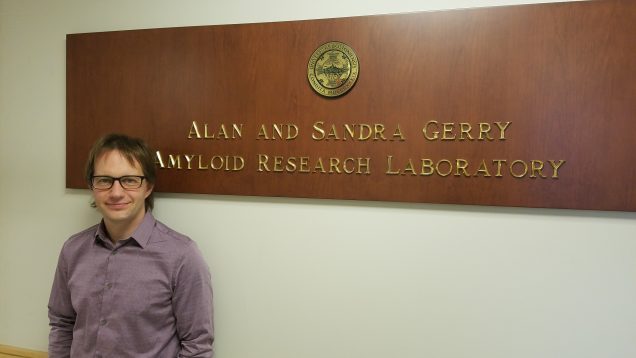Amyloidosis research
We use molecular biology and biophysics to understand rare diseases.
We study systemic amyloidosis, a family of diseases caused by aggregation of a normally soluble protein into deposits called amyloid fibrils. These are complex, rare diseases that require specialist care and treatment. We work with physicians and scientists at the Boston University Amyloidosis Center, who deliver world-class care to patients from around the world. Amyloidosis is also a complex natural phenomenon, the result of intricate molecular processes that reflect fundamental properties of proteins, which are molecules that carry out many of the essential functions of life. We work at the intersection of these fields. Our goal is to use information about the chemistry and physics of amyloid-forming proteins to intervene in the pathology of disease. Ultimately, the goal of our work is to help patients to survive and recover from these devastating diseases.

